Myojinriki Seisakusho
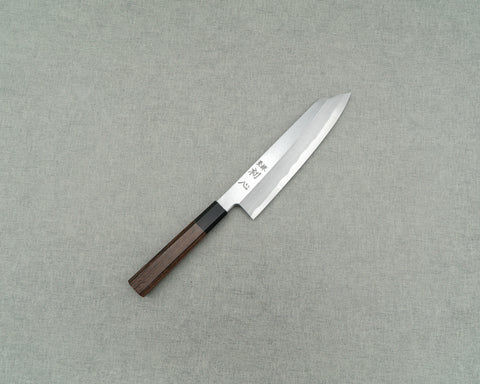
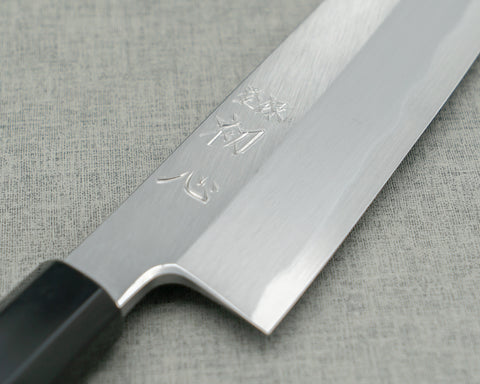
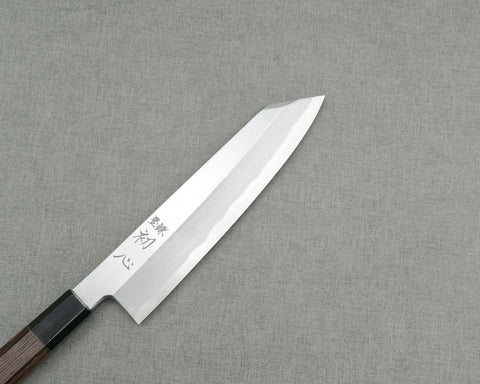
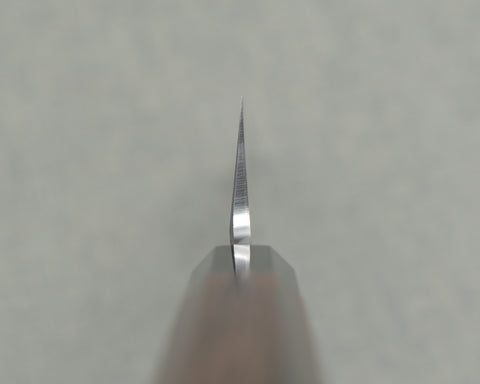
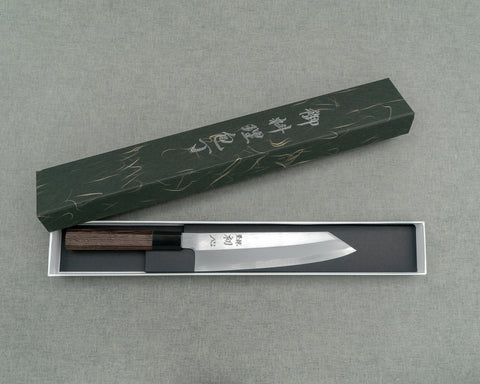
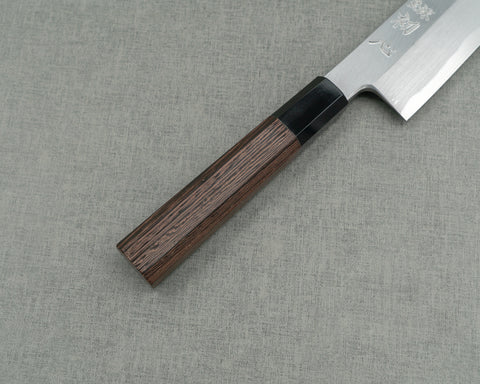
Hatsukokoro / Myojinriki Seisakusho "Shirasagi" Shirogami #2 210mm Kiritsuke Gyuto
目前沒有提供取貨服務
This single-edged Kiritsuke Gyuto is hand-forged with Shirogami #2 core steel, clad in soft iron and heat-treated to 60-61 HRC. The thickness of the blade contributes to the relatively heavy tip, whilst the behind-edge thinness on the single-bevel blade helps deliver an ultra-smooth cutting performance. For right-handed use.
Spec:
- Origin (Made in): Susaki, Kochi Prefecture, Japan
- Brand: Myojinriki Seisakusho
- Craftsman: Tateo Myojin
- Knife Type: Kiritsuke Gyuto
- Blade
- Construction: Awase (Kasumi)
- Grind: Single Bevel (Right-handed)
- Hagane (Core Steel): Shirogami #2 (White #2)
- Jigane (Cladding): Soft Iron
- Hardness: 60-61 HRC
- Hand-forged, hand-ground, hand-sharpened
- Blade Finishes: Kasumi Polish
- Blade Length(heel-to-tip): 200mm (7.9")
- Blade Height (at heel): 46mm
- Spine Thickness
- Above heel: 4.4mm
- Middle: 3.5mm
- Handle
- Shape: Hachikaku (Octagonal)
- Material: Wenge
- Kuchiwa: Black Buffalo Horn
- Length: 133mm
- Overall Length: 346mm
- Weight: 218g (7.69oz)
- Hand Chiseled Mark: In Japanese Kanji "Trademark Hatsukokoro" (登録 初心)
About Myojinriki Seisakusho 明神利器製作所 / Tetsujin Knife Labo 鉄人刃物ラボ
Myojinriki Seisakusho is a Kochi-based knifemaking workshop run by Tateo Myojin (明神 健雄) and Naohito Myojin (明神 直人), the father and son team. Tateo, who was born in the largely rural Kochi Prefecture in 1950, developed his interest in blade forging at a young age, so he went to Sakai, Osaka Prefecture, the famous city of forged knives, to receive training from Sakai knifemakers.
Tateo’s son Naohito-san - being a rebellion youth- refused to join the family business, until he sharpened his friend’s knife and received a compliment from his friends. The joy he got from doing it changed his mind, and he decided to be an apprentice under his father. Now just in his early 30s, Naohito already has over a decade of knife making experience under his belt. He has new ideas for the family business, and has recently launched a new family brand - Tetsujin Knife Labo (鉄人刃物ラボ).
Care:
Shirogami #2 (white #2) steel is one of the most popular types of high carbon steel found in Japanese kitchen knives (Wa Knives). It is not stainless, therefore you must wipe your knife dry after each use. Patina will develop over time. Rust may develop if left in prolonged contact with water or acidic food. Use a rust eraser to clean if rusts develop. Avoid cutting into bones, frozen foods, hard fruit pits.
Cutting Surface:
Recommended cutting surface: wood, rubberized boards and high-end composites, and quality plastics such as polyethene make acceptable cutting surfaces, and will help protect and prolong knife’s edge. AVOID glass, metal, countertops, and other rigid, non-forgiving surfaces.
Sharpening:
We recommend sharpening all quality Japanese knives on whetstones, as we believe they yield the best results for your knives.
